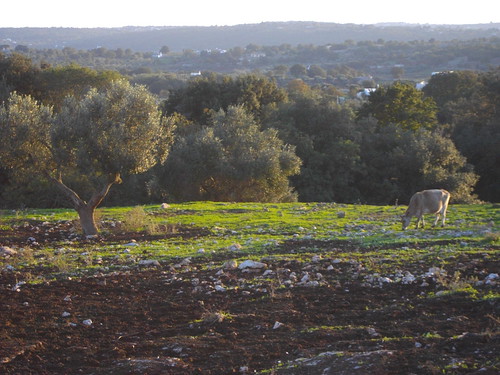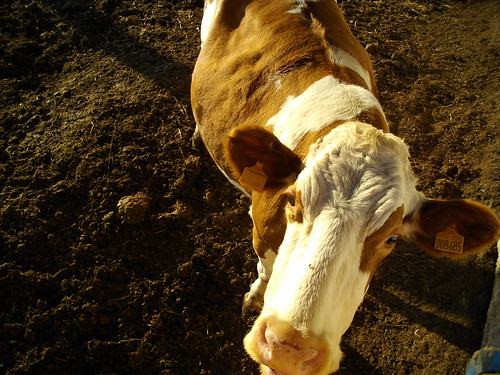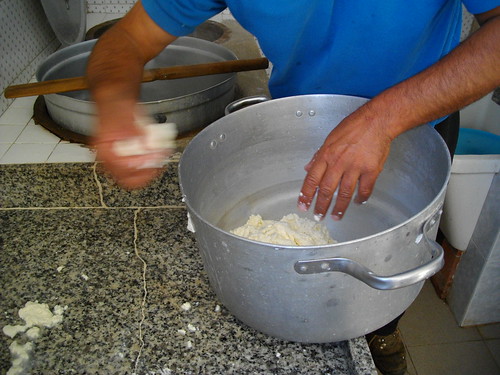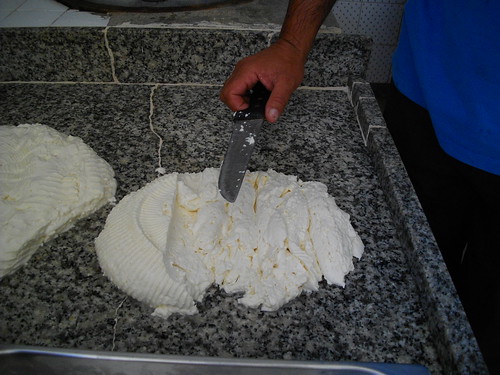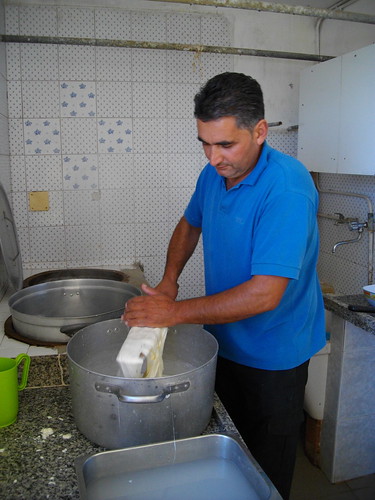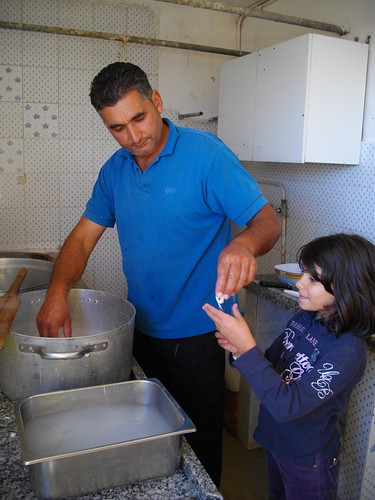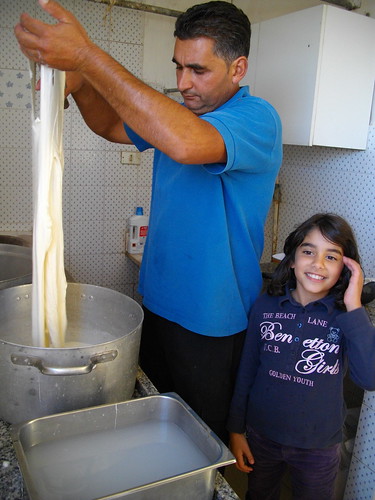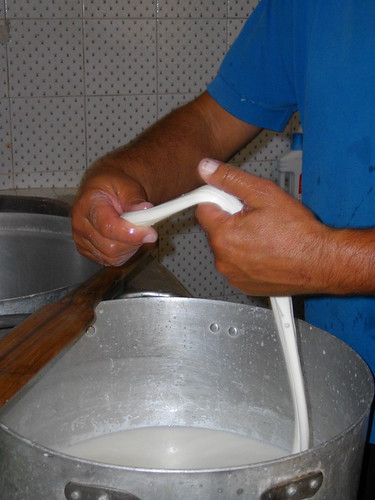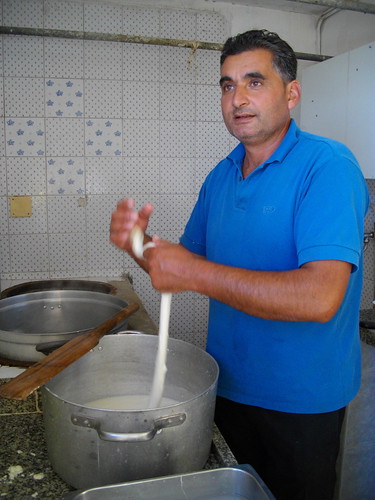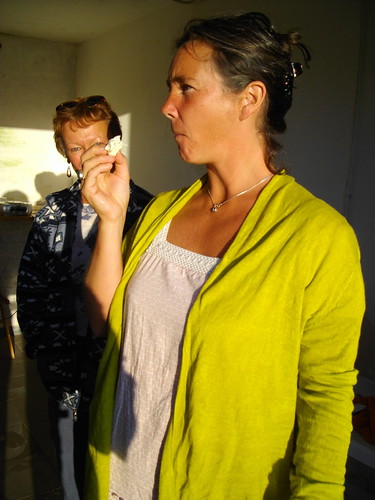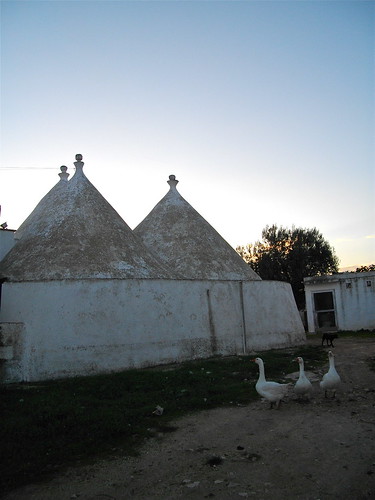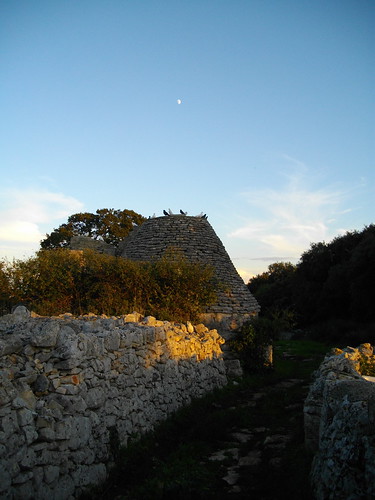Thursday, October 28, 2010
Wednesday, October 27, 2010
Provence and the British Imagination
here is the link to Julie's blog with everything you need to know about Julian's book signing and conference moment in Aix, except that on the Thursday night we are thrilled to announce that Gary Humphreys, the writer who wrote the beautiful introduction to the book, will be reading his piece before the signing.
Provence and the British Imagination
Provence and the British Imagination
Tuesday, October 05, 2010
Homage to Sandor Vegh

Thirty or so young musicians are curled up on velvet love-seats and scabby leather armchairs. Some clutch at tea and scones with gobs of cornish cream, and others at an early-bird half of ‘scrumpy’, the local cider. The remains of the log fire from last night's quartet-reading session relax in the oversized grate. Out of the lead paneled triple window, beyond trestle tables covered with remains of pasties and salad, beyond the abandoned croquet game on the tufty grass rolls the sea, its rhythmic crash against the cliffs constantly reinforcing what the maestro is saying.
We are in the Great Room at Porth-en-Alls at the International Musician’s Seminar, and in front of us is Sandor Vegh, the larger than life Hungarian musician. He has lain down his violin. With one hand and he is making as if to pull something very long out of his mouth and with the other he is making scissor movements, as if he is cutting the long thing that is coming out of his mouth. From his gut we hear a semi disgusted sound ‘Naaaaaaaa’ punctuated, each time he makes the scissor movement, by the word ‘Cutted!’ . Suddenly he stops, swings round on his chair (his belly and several chins seemingly a split second behind the rest of him) and cries:
‘Why you make macaroni sound?Naaaaaaaa… Cutted! Naaaaaaaaa…. Cutted!’
The student lets her violin hang from its scroll hooked in her sweating fingers and looks at Vegh. For those of us who have been here fifteen years on the trot, of course, the little piece of theatre is a welcome reminder of the curved nature of things, whether they be notes, waves, phrases, pasties, forearms, chins or purfling. However, for those for whom this is the first encounter with the great man who played with Casals and was friends with Bartok, there is a little more explaining to do.
Mr Vegh juts a fat first finger at the window and says: ‘Look ze waves! Avery sing in nature is caaaaarved!’
On that day, and on many days before it and still to come, from that grand oak chair in the Great Room looking out to sea, Mr Vegh taught me possibly the greatest lesson I ever learned. That nothing - no note, no phrase, no symphony, no movement, no preparation, no vibration - is made from straight lines. Meanwhile I have often wondered if, in his lifetime, not that it is very important, he gleaned any more information about pasta shapes. I still wonder, when he said macaroni (the curviest type of pasta available) did the Maestro in fact mean spaghetti, which is long and straight? Or, even better, flat sheets of hard edged lasagne that could well describe some sounds I have heard? Or perhaps Mr Vegh was simply incapable of contemplating anything straight in the universe. I shall never know.
(Sandor Vegh 1912-1997)
Sunday, October 03, 2010
A traditional French folk tune
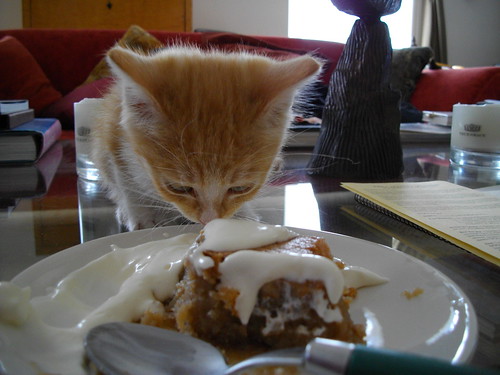
It is the usual Wedensday kerfuffle at Mourchon: Twenty-five Americans arriving for lunch on a Rick Steve’s
‘Villages and Vineyards of Eastern France’ tour, Mum, Grandmum, and little sister serving goats’ cheese quiche, the excitement of a new kitten who loves the chestnut cake a little bit too much, grandpa trying to ration the rosé, Dad trying to snatch some leftover fromage in between the tour and the afternoon’s picking, and a ballet outfit waiting to be worn for only the second time. Aggie, meanwhile, is curled up as if nothing were going on but the wind whistling in the vineyard. On the sofa with a book. Oblivious.
‘I’ve written a story….’ she says when I enter. Aggie is nine and plays the cello very well. She has been both well taught (not by me, I might add) and studious. However, the connection between her love of the arc of a story and that of a piece of music is about as tenuous as the connection between my love, at her age, of dancing to the Bee Gees and playing a baroque Gigue. She continues. ‘…about the traditional French folk song I am going to play you.’
It is unlike me, but I actually try, for a minute, to temper my excitement. ‘Do tell me your story, Aggie. Do you have it written down?’
‘No. Yes, well it’s at the other house, but it’s in my head. It’s about a little girl, well, it’s in the second world war and she’s in her room and she wakes up and well she feels something is different…..’
It is a beautiful story. A perfect fairy tale with all the elements we need to construct a piece of music: A young heroine, an exotic location, a premonition, a village chorus, the handsome horseman with some big news, an unraveling scroll (not quite from the right century but who cares) and lastly confirmation of the premonition.
Aggie concludes ‘…. And that is when the little girl thinks, I knew something was different about today, and she feels happy.’
First, by playing the piece (fortunately in three parts, two of which I can just about play simultaneously) we establish how many phrases we have in which to tell her story. Then by stopping at the end of each phrase, listening to the silence and identifying the feeling in the room before we continue, we decide what kind of mood each phrase has and whether it is, for example, a statement, question, answer or exclamation. There are five phrases, we decide. 1. Questioning. 2. Confirming. 3. With a sense of unraveling. 4. With a sense of excitement. 5. A joyous statement with a feeling of peaceful resolution.
Both Aggie and I are excited by the story, and after we work on it for a while I ask her if she would like for us to play it for the family. Back in the kitchen twenty-five chestnut puddings and cream are scurrying out the door, the tiniest barrista I have ever seen (little sister Lilla) is working the Nespresso machine, there is a pile of washing up to be done and coffee to be served to the punters on the lawn, but everyone, including the six week old kitten, decides they can spare a few minutes to listen to Aggie’s story.
Aggie’s story goes like this:
A little girl is in lying in her bed in her French village house. Through the open windows, on this particular summer’s day in 1945, she can hear not just the breeze and the usual birdsong, but something different. A new sound. She thinks, something special is going to happen today….
The little girl walks towards the window, looks out on the street, and sees that people are milling about everywhere. In doorways, on the pavements and the road. It is not just the normal milling either, the going-to-the-boulangerie or catching-up-with-a-neighbour milling. This is special milling. It is then the little girl catches sight of the handsome man in uniform on horseback whom everyone seems to be watching.
The man on horseback starts unraveling a very long scroll. The tension amongst the villagers is mounting…
He starts to read the script which has an endless preamble ‘Ladies and Gentlemen, His Royal Highness….’ Blah blah. The villagers are becoming impatient to know the news.
The man on horseback finally delivers the news. ‘Ladies and Gentlemen! The war is over!’. The little girl is overjoyed and thinks to herself quietly, yes, I knew something special was going to happen today.
Aggie starts playing quietly, sleepily. The sleepiness makes her arm move slowly and heavily producing a perfect ‘Once-upon-a-time’ sound, with core and yet not too definite. She allows a questioning silence between phrases one and two, and yet she is eager to go on with the story so her upbeat has energy. During the second phrase, the fresh breeze at the window and the sense of confirmation make her bow move more briskly and with more attack, causing the sound to be airier with more defined edges. The bow slows down again in the first unravelling passage to keep us on tenterhooks, but speeds up naturally, almost despite itself, as the impatience to tell the news mounts. The breath before the last phrase is almost swallowed in anticipation and with the affirmative joy of the news in the last phrase, Aggie almost throws the bow in exuberation. This causes a brilliant energetic sound that, I think at the time, could sing for Europe at the end of a long war. In the closing bars, with the sense of relief and relaxation, Aggie executes a delicious diminuendo and rallentando. How she does it, I don’t know. I think perhaps it does her. She takes her bow off the string gently and sits in silence. We sit in silence with her. With Aggie the story teller and the little girl in the story Aggie told.
Aggie the cellist is nowhere to be seen.
Friday, October 01, 2010
Cellos and Chateauneuf
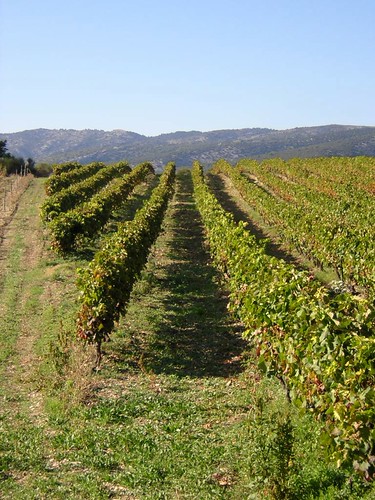
The drive to Gigondas is green and bronze, the hard summer having relaxed in to Autumn. As I enter Rhone wine country, white letters on the slopes spell out 'VACQUEYRAS ET SES VINS', in an unapologetic mockery of the Hollywood sign. A smaller announcement on the road et the start of the village asks us to please take care at harvest time. 'Prudence s'il vous plaît. Vendange.' Presumably it means of the slow moving trucks piled high with grapes, but then I realize there is an emptiness to the request and I can't tell what is missing.
When I coast up the stony drive of the chateau and park amidst the harvest paraphenalia I am thinking L has been in a good mood of late. Though he says he will not really be able to tell until spring, he is ecstatic about this year's harvest. In fact, last week he said to me 'This is my year'. I am touched that, even at the busiest time in a wine maker's calender, L still makes room for our hour together.
We are working on a Beethoven clarinet trio he is playing with his son and a friend. Like a painter having worked on cast drawing alone, after almost two years working on form, we agree it is exciting to be contemplating the palette at last. One of L's weaknesses, and he knows it, is that he does not listen well. He takes in information, agrees with it passionately and is so convinced that he is applying it that he does not hear that the idea has perhaps not gone further than his brain. I am talking about clay. (As usual we are mixing metaphors like children baking a cake with salt instead of flour and rice instead of sugar.) He plays the opening phrase of the Adagio with the upbeat on a down bow. I suggest otherwise and he starts again. When I have something to respond to I add in the accompaniment the cello gives later to the clarinet. I watch the crescents of Chateauneuf du Pape that are his fingernails lifting, pulling, pushing, spelling out the notes. Our lines touch. The vibrations meld, and then the unison disintegrates as my line falls away. When we stop playing something has changed in his face. The whole of him is listening to Beethoven ringing in the air, and he is loving it.
'Now I see' he says after the pause. 'How music is not like painting, but it IS like wine making. Unlike the painter, we, you and I, are given this great raw material. For the musician it is the score. For me...Well, anyone can chuck me a parcel of great old chateuneuf vines....It's about what you do with it. How you learn about it and listen to it...'
'How, with your hands, you mold it into something people can understand...?' I say.
'And possibly even something great.' he says.
Later, when I am lunching with friends at Domaine de Mourchon, we are talking about the grape picking machines. Ninety percent of wine makers in the area, says H, are using it.
'With its huge rubbery lips.' I say
'And its ability to tickle and tease the fruit from the vine...' says H. 'But seriously, it is simply much much more cost efficient and noone can prove there is a difference in quality'.
'And if you had just, as I have' says his wife, K , 'spent three hours at five in the morning filling in five pages of forms for each one of the twenty pickers who have just worked for you for three hours....'
What was missing in the landscape, I realize, was hands. Also, hats bobbing in and out of the vines. Pickers' picnics at midday at the side of the road.... But is that all just silly romance? Is being sentimental about the season of people crouched down for hours doing back breaking work like saying I will not play off a score that has been printed out by a computer programmer and not written by a musician's hand? I guess the new vintage will tell. Meanwhile, I am glad that cellists have not quite yet been replaced by rubbery lipped machines.
